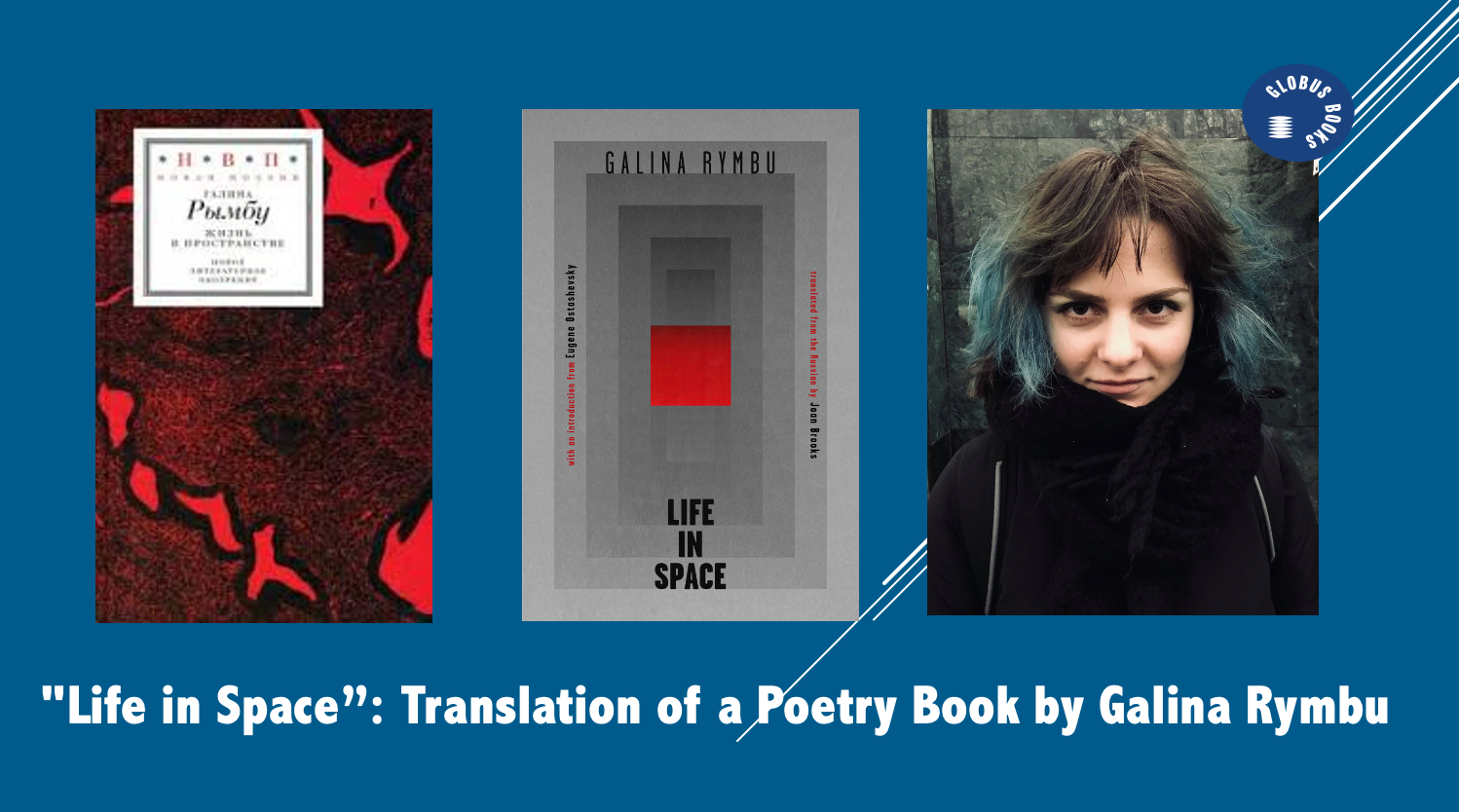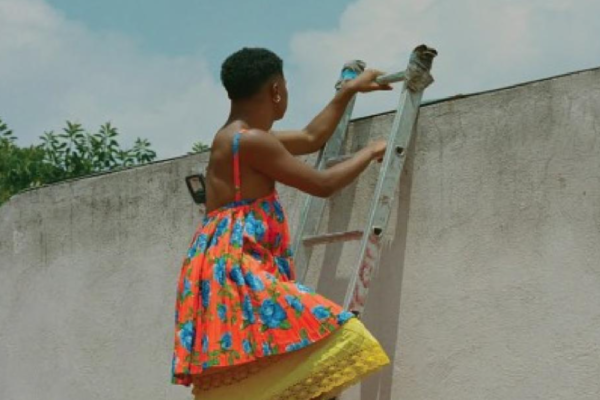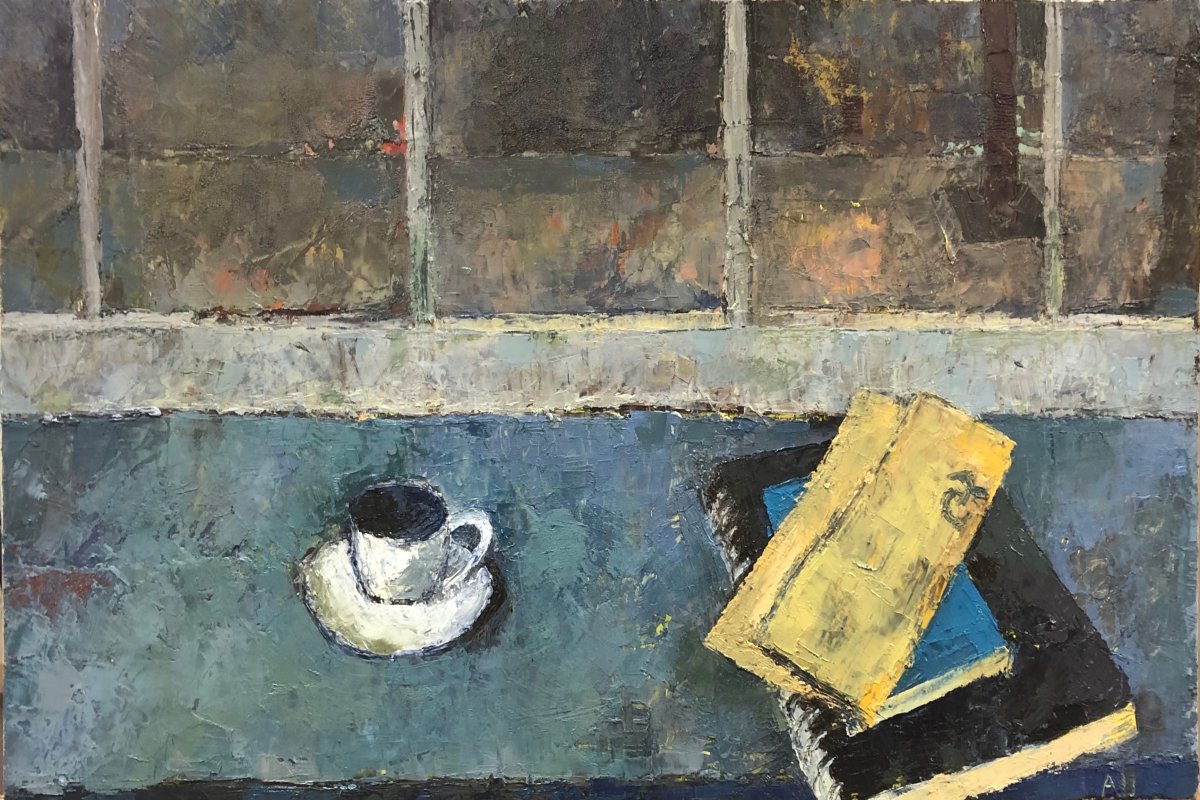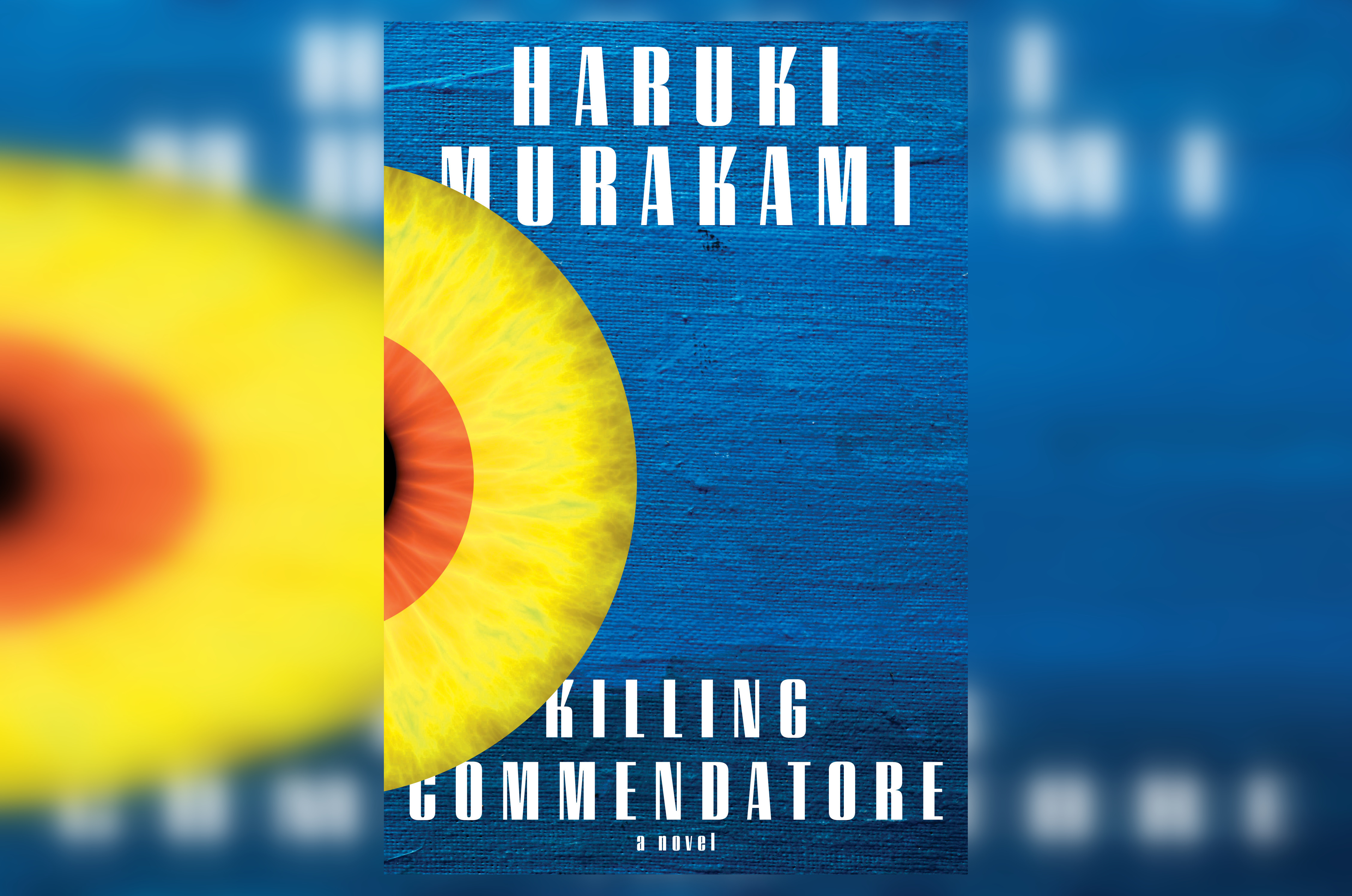On October 17, 2020, Globus Books, an indie store that specializes in bringing Russian literature to the Bay Area and the wider country, hosted a live event to present Galina Ryumbu’s new book of poetry, Life in Space in English translation, translated by Joan Brooks and others, and forwarded by Eugene Ostashevsky, forthcoming from Ugly Duckling Presse in November 2020. It is Rymbu’s first full-length poetry collection to be translated into English and includes poems from her three previous collections as well as new work. The book includes additional material translated by Helena Kernan, Charles Bernstein, Kevin M.F. Platt, Anastasiya Osipova, and others.
Hosted by Zarina Zabrisky, manager of Globus Books, the Zoom/YouTube Live broadcast featured readings by Rymbu, Brooks, Kernan and Osipova, followed by a discussion with translators Joan Brooks, Helena Kernan, Anastasiya Osipova, and Kevin M. Platt, poet Eugene Ostashevsky, and poet and publisher of Ugly Duckling Press, Matvei Yankelevich. (Yankelvich is also an adjunct associate professor of writing at Columbia.)
The event, described as “mesmerizing” by an audience member, kicked off with a video of Ida Börjel, Swedish translator and ambassador of Rymbu’s work. Börjel introduced how Rymbu’s exclusion of violence is accomplished through a certain violence in a number of unnoticed ways. Rymbu focuses not on disaster but on its aftermath. In Life in Space, a male and female cyborg, who are lovers, transcend, touch, and move in this future geography, through discourses ranging from Hegel to the suburbs.
Rymbu started the event by reading from her first book of poems in Russian, Moving Space of the Revolution (Argo Risk). Rymbu described the first two poems she read as pessimism in human form.
“The blood of animals that explains everything” («Разъясняющая всё кровь животных») is set in the Siberian steppes in winter, speaks of the “blood of animals” that “clarifies everything.” Next to the warm meat and the dead horsefly, “only one of us went off to live.” “School” («Школа») ends where it began, “lies, lies, lies,” the boy in the billboard poster cried out. The smell of formaldehyde permeates the dead mouth of the state and broken the independent press. In this “red film,” Rymbu evokes the “blood of animals” as well as communism, and hones in on the image of a traveling puppet theater, where the full recognition of how state-sanctioned institutions were ominous. Rymbu then read work from her second phase, which began around 2015 after the Ukraine Revolution and the Russian Intervention. Compared to poems from her first phase, these later poems focus on transcending distinctions between human and animal and among gender identities.
“Holiday” («Праздник»), Rymbu’s ars poetica poem embodies her will to illuminate darkness with direction—“frothing with different kinds of darkness,” as Brooks translates it. In this poem, Rymbu elevates the mundane to the philosophical by placing the harshness of a storm under the cramped folds of a bus. With a number of these strange juxtapositions of the ordinary with the extraordinary, Rymbu anthropomorphizes objects like fruit deseeded for the first time. To Rymbu, however, these objects exist beyond labels like pain and must be examined as a part of society, where meaning is regimented. In this sense, poetry for Rymbu is meaning-making outside of the constraints of illusory politics, where slogans and propaganda predominate. Instead, Rymbu democratizes her poetry by reflecting on the quotidian travails of labor.
The next series of poems she read were from the Cosmic Prospect cycle («Космический проспект») and shed light upon how Rymbu illuminates darkness with direction, which is a theme that appears in a variety of ways in her work.
One variation of this theme appears in “My father sleeps on the floor” («Мой отец спит на полу»), where obsession over a long-overdue paycheck turns pathological and violent. The speaker, the mother and son, cry tears by day for and dream by night about the father’s paycheck. With desire strong enough to kill, they dream of everyday luxuries like shampoo and the black glow of an August boat ride. If poverty is akin to the darkness at night, waiting to be illuminated by the paycheck and the dreams beyond the cramped bedroom represent the yearning for a better life—a concrete demand for food to eat from the “palaces” of the provincial supermarket. At night, the father “sleeps on the floor, waiting for his paycheck.” His mouth, however, does not “bloom crimson” like a communist party liner. Instead, he rumbles and sighs. The poem ends with a mumble in Moldovian, drawing attention to the vast linguistic and cultural expanse of the former Soviet Union.
Another variation of illumination appears in “Orbit” («Орбита»). In “Orbit,” Rymbu sketches a longing for a “cosmic prospect,” a yearning beyond the stench of rotting meat and vegetables left by the steps of a subsidized barber shop swamped with locusts. The poet makes clear that this cosmic prospect is not yearning for the saccharine, or an “idiotic” sweetshop named “Sweet Tooth” with steps too high for anyone to get in. If that which is saccharine is the impossibility of an ideological propaganda, then the new space carved by Rymbu is informed by the past, like Andrei Platonov’s Chevengur (1928), where Bolsheviks sought to establish a Communist community, and by the mystery drama TV series Twin Peaks, where the red so present in Rymbu’s poetry share resonances with the “red room,” an anomalous extradimensional space inhabited by spirits and in the blood of the murdered.
Illumination of the tragedies of a Slavic world hurt by the devastation of war could also be found in “The man from Nefteyungansk” («Человек из Нефтеюганска»), where a train carries men in coffins as well as living men from two wars. In this surreal reality, optimism, like the dreams of the paycheck, achieves a lunatic timbre, as the man from Nefteyungansk onboarded people en route from Omsk to Moscow. This alternate world contained in the man’s checkered bag resonates with the “lilac tiger” in “To My Son” («Сыну»). Specifically, the lilac tiger features both as a mythological creature and an actual guardian for the speaker’s son. The lilac tiger places its hot hand on the speaker’s body, keeping it warm from the cold hard floor of poverty. On the floors below, where the lilac tiger is absent, drunk boys brawl. In their fatigue from the war and from living their lives drunk, we see a world ravaged by war and poverty but one which nevertheless stands beyond what is “hurt.” That is, we see an imagined world created by the hopes of very real characters, of their joys living in a dysfunctional state.
The host Zabrisky then moved the discussion to Rymbu’s idea of imagining translation as a mirror reflection of “you.” These reflections, some of the most exciting elements of Rymbu’s poetry and in the translation of her work, are reorganized and summarized by topic below.
Translating Rymbu
Yankelvich asked Rymbu’s translators who were present at the broadcast about moments that stood out to them in the translation process.
In the five years Brooks spent translating Rymbu, Rymbu’s poetry transformed from more direct, militant poetry that was quite simple to translate to poetry that was more difficult to translate. This difficulty notwithstanding, for Brooks, there was a real pleasure in collaborating with Rymbu and listening to her explain how words, especially slang words and idioms that Brooks didn’t know or had multiple meanings in Russian, should be translated into English. In that sense, the translation was truly a collaboration.
For Osipova, the plurality of voices in the communal translation of Rymbu’s “Book of Decline” was immensely gratifying. Osipova described her greatest pleasure from translating this text was to chase after Rymbu’s dynamic logic through a shared literary interest in Slavic literature.
Kernan noted that the she is attracted to Rymbu’s work for how fiendishly difficult it is to translate. As translator and co-author of the English text, she recounts how Rymbu mirrored her interpretation and tone, and Kernan, in turn, mirrored Rymbu’s in bilingual readings, and how that shaped her translation practice.
The Stylistic Multitude of Rymbu’s Work
Part of what made translating Rymbu so special was the way her poetry continually reinvented itself in style and content. In this way, Ostashevsky noted, Rymbu’s work defied commodification. He was curious about Rymbu’s creative process.
For Rymbu, each poem began as a roaming poetic event. Rymbu would sit down to write the poem only when the event achieved its specific form and method. In this way, she was able to resist the patriarchal linear logic of the Russian tradition.
Philosophic Influences
Kevin F. Platt, a translator of Life in Space, noted that Rymbu combined her keen documentary instincts with philosophical language. He was curious about how the philosophical elevates the banal. He was also curious about the role of Andrei Platonov in developing Rymbu’s voice. According to Platt, there is an estrangement between Platonov and the characters in his narrative works, and he was interested to see whether this same estrangement was present in Rymbu’s work.
Rymbu identifies Platonov as the Soviet author closest to her heart. Rymbu has described her poems as having the same affective substance as the confluence of utopia and melancholy in Platonov Juvenile Sea. Rymbu noted that Life in Space also features a sci-fi narrative of a post-catastrophic, apocalyptic world that examines its relationship with technology. This setting, in turn, is similar to the setting of some of Platonov’s works.
Osipova was interested in how Rymbu’s interpretation of Platonov might be viewed in tandem with philosophical, ecological, and feminist theory, to reengage literature and build bridges to the present.
Rymbu identifies poets as people that seek to erode boundaries separating species and organic and inorganic forms. Poets allow people to desist the traditional Soviet view of the human conquest of nature and to see nature in a new light.
This shared willingness to transcend boundaries may be why both Platonov and Rymbu’s works helped lift Brooks when they were feeling low. As Jonathan Flatley wrote in Affective Mapping, socialism in Platonov is a salve by helping the Russians “maintain interest in life itself.” Jogging while listening to Platonov helped Brooks while they were suffering from psychotic depression as an Assistant Professor at the University of Pittsburgh, and translating Rymbu was, likewise, the best antidepressant they had ever had, an important point that they hope to share with a wider audience.
Musical Influences
Contrary to Yankelvich’s supposition, the Siberian punk scene did not influence Rymbu’s work. Instead, to Rymbu, opera has always been more “hard core” than punk, especially Turandot, in its feminism and its pathos. By this Rymbu means that opera subverted the masculine norm of the expected by delivering its narrative through song. Rymbu’s early music exposure had been classical: as a child, Rymbu played her violin in front of shops to men drinking vodka so she could get money to buy food. Rymbu did not encounter pop music until she was 26, when she first listened to Nina Hagen, a German punk and new wave singer.
The Political Aim of Rymbu’s Poems
Zabrisky was interested in Rymbu’s political aim in helping shape a collective narrative of Russia. Rymbu sees poetry as encompassing political affects and space. Poetry, then, “is not simply about emotions but the use of political affects to change space.” Poetry provides “social imagery that can lead to the transformation of the world.”
While this transformation may be interpreted as “cathartic,” Brooks suggested that Rymbu’s poetry is not politically cathartic. Brooks defines catharsis as a “form of contained subversion that allows society to reaffirm its boundaries and laws.” Thus, in this sense, Rymbu’s poems “are not cathartic because they come after tradition and the law, and do not abide by tradition or the law.”
Part of the transgressive nature of Rymbu’s poetry can be found in her controversial poem, “My Vagina.” The negative response from certain Russian critics has centered around her use of the word “vagina” in Russian.
In the last segment completing the triptych, there was a Russian and English reading of fragments from the cycle “Devoid of Signs” (Фрагменты из цикла «лишённые признаков»). Rymbu read the fragments in Russian and Ospiova and Kernan, her translators, read in English. In the readings, we saw Rymbu’s stylistic dexterity in the creation of a nonexistent text, “Book of Decline,” that is burned.
In Ospiova’s rendering of Rymbu’s “Book of Decline,” the bridge between the eating man and the pollinating insect is drawn through the red of the burning skin and fire. Everything touched, including the dome of the defensiveness, has become red. Rymbu’s red serves as an allegory for the vastness of war, which impacts the building where people dwell, and the people themselves, as they burn. This red is not set in Dido’s Carthage, however. Instead, the phone rings, bringing us from the historical and mythological past of censorship through book-burning to the present with its omnipresence of phones. Here, the expanse in time and space is constructed through images that help readers look beyond categories and in associations among disparate things. For instance, the microscopic scroll and umbilical cord may have very little similarities, but for their identity as fingerprints left by a life that once existed. Rymbu pushes us to see these associations in the “dark disaster zone,” through defamiliarization of things we thought we knew well in the “fiendishly strange,” to borrow Kernan’s phrase, environment that the industrial, the supernatural, and the human coexist.
Thus, it seems fitting that the reading closed with an allegory of the birth of language in the “Cave of Missing Digits.” Ospiova added that Rymbu once told her that a Slavic paleontologist theorized that language emerged as an expression of violence. The missing digits, in turn, shed light upon the red in the “Book of Decline.” Poetry, then, may be seen as the empty space of the several palms. It is illuminated through a vulgar sunset, defying the categorization that the writing as “the stuff of evil” sitting and laughing as each line erupts.
Before closing this bilingual event, in response to a query from the audience for suggestions for English-language poetry that is as surprising and beautiful as Rymbu’s, Brooks advised everyone to read Audre Lorde. Both Audre Lorde and Rymbu are from another planet, transcending the species in their poetry. Rymbu in particular, achieves this effect of familiar strangeness in quite different ways, as if the aliens have sent us a wise person for us to remember the core of what being really is, with knowledge that we lost since the Tower of Babel.
Like other attendees, I was left with a sense of awe and a yearning to write and to illuminate darkness in my own way, inspired by Rymbu’s light.
Where to Go Now
· Globus Books has a list of events on Russian literature in translation available.
· The English translation of Life in Space is available for pre-order from Ugly Duckling Presse.
· In addition, link to two of Rymbu’s poems discussed during the conversation in English translation could be found here:
o “My Vagina”
o White Bread
Tiffany Troy is the assistant online translation editor at Columbia Journal. She is so grateful to Zarina Zabrisky, Joan Brooks, E. Madison Shimoda and Brittany Nguyen for their generous editorial insights.
Photo Banner Courtesy of Globus Books



